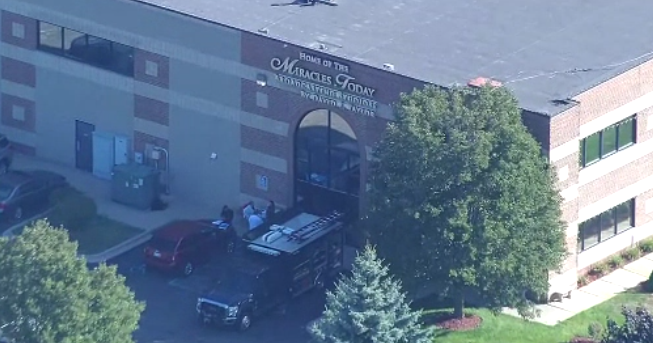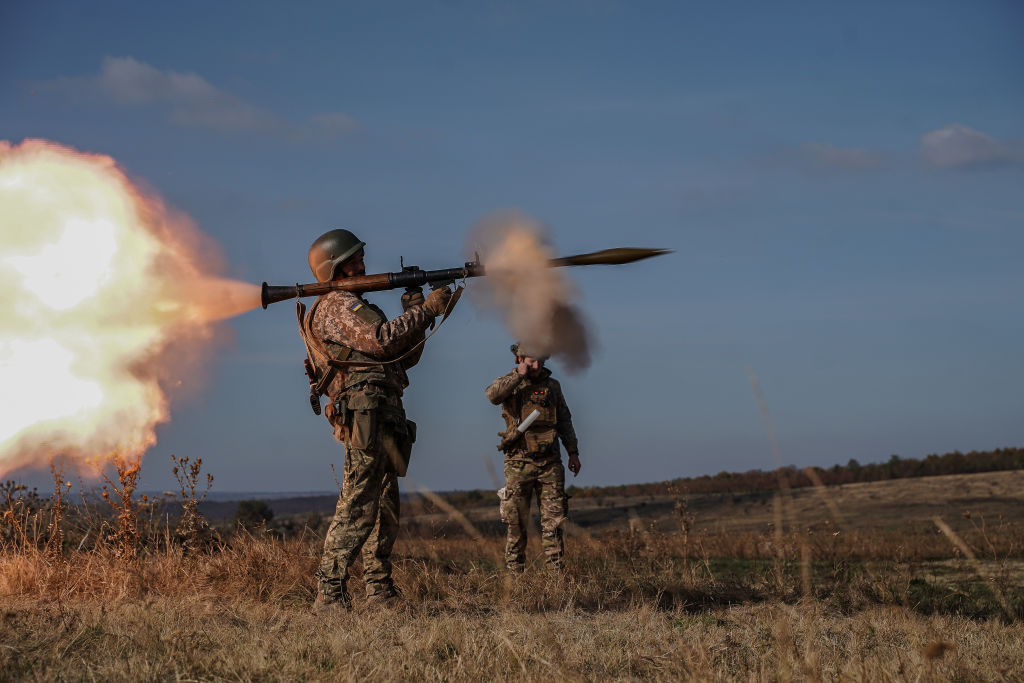U.K. army chief says citizens should be ready to fight in possible land war
London - U.K. civilians should be ready to fight in a hypothetical land war, the head of the British army, Gen. Patrick Sanders, said Wednesday, warning that the ongoing Russian invasion of Ukraine showed it was "citizen armies" that make the difference in conflicts. He said the British military is currently too small to respond to the threats emerging in a changing world.
"Taking preparatory steps to enable placing our societies on a war footing when needed are now not merely desirable but essential," Sanders said in a speech. "Our friends in eastern and northern Europe, who feel the proximity of the Russian threat more acutely, are already acting prudently, laying the foundations for national mobilization."
The U.K. army is currently estimated to include around 75,000 fully trained professional soldiers, and there are another 60,000 service members in the British navy and air force.
The U.K. spends around 2% of its gross domestic product on its military. Though the British government says that will increase to 2.5%, Sanders, who has long argued for more military spending, said the army should grow to a standing force of around 120,000 soldiers by 2027, and even that "is not enough."
"Ukraine brutally illustrates that regular armies start wars; citizen armies win them," Sanders said.
His remarks, along with those of other senior defense officials, prompted a response from Prime Minister Rishi Sunak's office, 10 Downing Street, which ruled out any military conscription.
Other top defense officials in the U.K. have voiced concerns over growing international threats, including Russia. Earlier in January, Defense Secretary Grant Shapps said Britain needed to reposition itself, as there had been a transition "from a post-war to pre-war world."
"Old enemies are reanimated. New foes are taking shape. Battle lines are being redrawn. The tanks are literally on Europe's Ukrainian lawn," Shapps said in a speech. "The foundations of the world order are being shaken to their core. We stand at this crossroads – whether to surrender to a sea of troubles, or do everything we can to deter the danger. I believe that, in reality, it's no choice at all. To guarantee our freedoms, we must be prepared."
"Not everything is going to be hunky-dory"
The U.S. and its NATO allies began a monthslong exercise this week that will be the alliance's largest war games since the end of the Cold War. The Steadfast Defender 2024 drills will see about 90,000 troops from the allied nations rehearse some of the first regional defense plans NATO has put together in decades, according to the Reuters news agency.
"I'm not saying it is going wrong tomorrow. But we have to realize it's not a given that we are in peace, and that's why we have the plans," Dutch Adm. Rob Bauer, the NATO military committee chief, said at a press conference ahead of the exercises.
Bauer said conflicts like the war in Ukraine showed that "it is the whole of society that will get involved, whether we like it or not."
NATO member states must therefore adapt to "an era in which anything can happen at any time, an era in which we must expect the unexpected," Bauer said, urging citizens to prepare basic supplies in case a conflict breaks out unexpectedly.
"You need to have water, you need to have a radio on batteries and you need to have a flashlight on batteries to make sure that you can survive the first 36 hours. Things like that, simple things, but it starts there. The realization that not everything is plannable. Not everything is going to be hunky-dory in the next 20 years," Bauer said.




